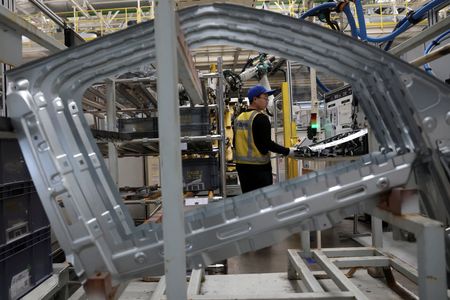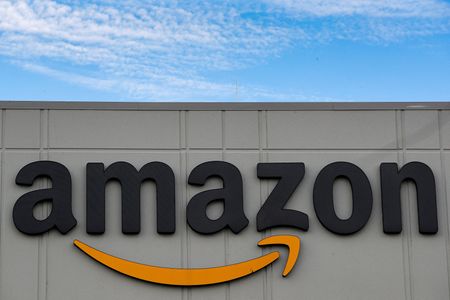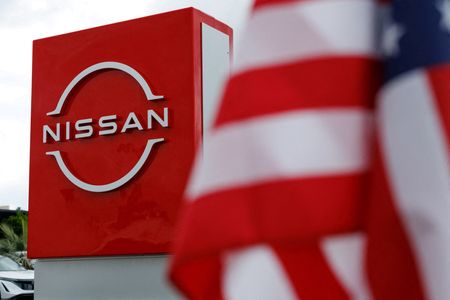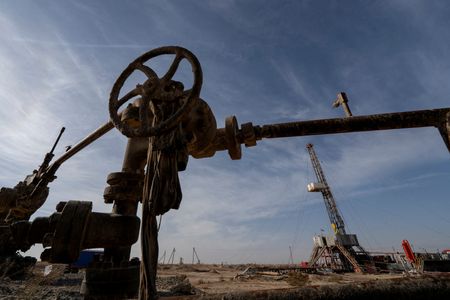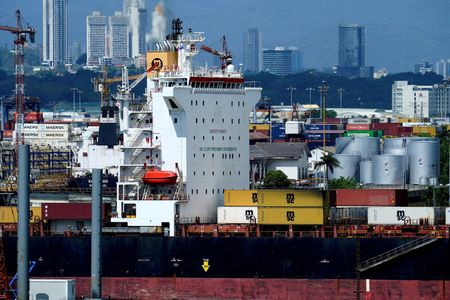By Jonathan Cable and Leika Kihara
LONDON/TOKYO (Reuters) -Factories around the world, from Japan to Britain to the United States, saw activity slump in March as businesses braced for new U.S. tariffs, though some saw a bounce in the race to get goods to customers before the new measures hit, global surveys showed on Tuesday.
U.S. President Donald Trump is set to announce a tariff proposal on what he’s called “Liberation Day” on Wednesday, after implementing levies on aluminium, steel, and automobiles, along with increased tariffs on all goods from China.
Trump has said no nation will be spared tariffs that policymakers fear will be the latest blow to a global economy barely just recovered from the COVID pandemic and beset by concerns over political instability and wars.
Asia’s factory activity mostly weakened in March as the impending tariffs, plus weak global demand, hurt business sentiment, Purchasing Managers’ Index surveys – a closely-watched gauge of economic sentiment – showed.
Japan’s factory activity fell at the fastest pace in a year, while South Korea’s decline in factory activity also sped up and the Taiwanese read-out was weaker as well.
China was one outlier, showing activity in the world’s second-largest economy picking up as factories rushed to get goods to customers before U.S. tariffs took effect.
And in the United States itself, where factory activity had expanded in the first two months of the year, manufacturing shrank, with the Institute for Supply Management (ISM) manufacturing PMI slipping to 49.0 from 50.3 in February. A PMI reading below 50 indicates contraction. A sub-index for new orders fell to its lowest since May 2023.
Julian Evans-Pritchard, an economist at Capital Economics, said the results suggested China’s industry was benefiting from “tariff front-running”, but added: “It won’t be long before U.S. tariffs turn from being a tailwind to being a drag, however.”
The front-loading of activity was also cited as a possible factor behind a bounce in Europe’s long-suffering manufacturing industry, where output rose for the first time in two years, the PMI for the 20-country euro zone showed.
“A significant part of this movement may have to do with the front-loading of orders from the U.S. ahead of the tariffs, which means some backlash is to be expected in the coming months,” said Cyrus de la Rubia, chief economist at Hamburg Commercial Bank.
Germany, Europe’s largest economy, saw its first production increase in nearly two years, while the downturn eased in France. But British manufacturers endured a torrid March as the tariff threat and impending tax increases contributed to a plunge in new orders and ebbing optimism.
Investors remain nervous, but global stocks rose on Tuesday following Wall Street’s overnight gains, while gold hit an all-time peak. [MKTS/GLOB]
Yet other indicators on Tuesday showed weakness, with South Korea’s exports growing more slowly than expected and Japan’s closely watched tankan survey showing big manufacturers’ business sentiment hitting a one-year low.
(Reporting by Jonathan Cable and Leika Kihara. Editing by Hugh Lawson, Mark John, Mark Potter and Chizu Nomiyama)

